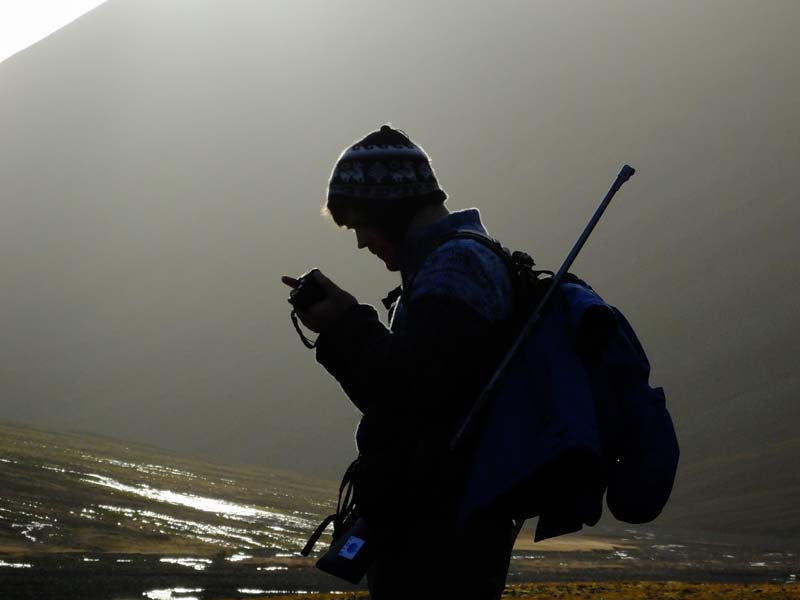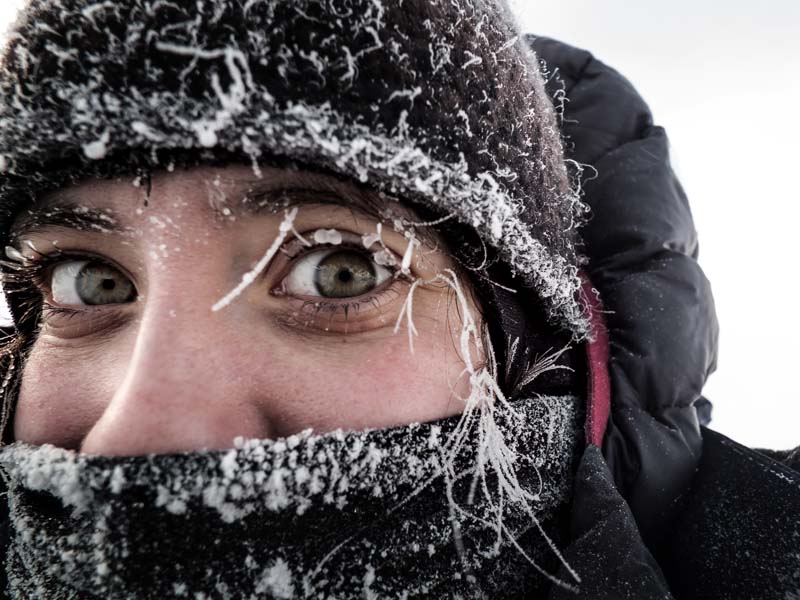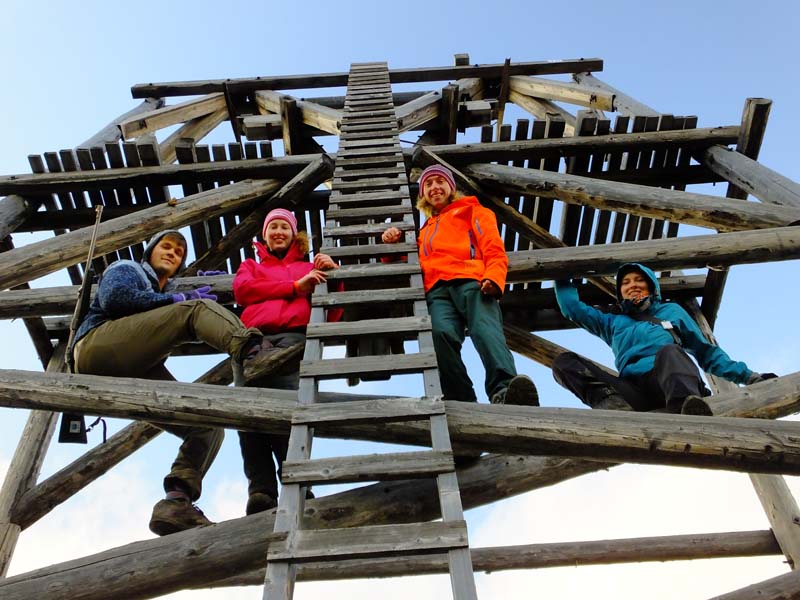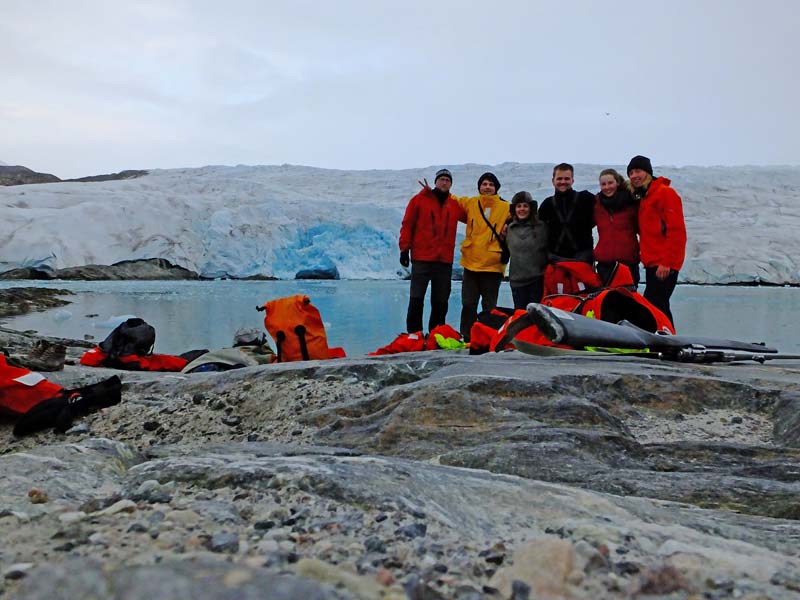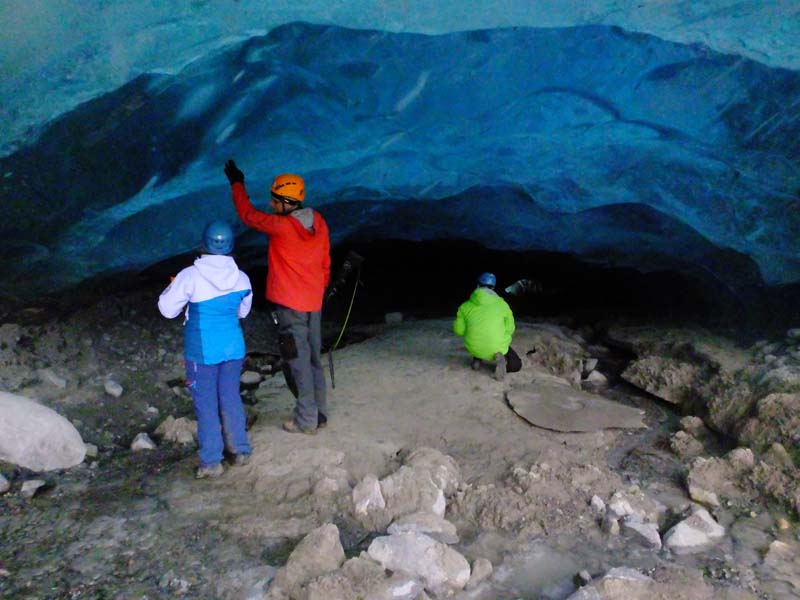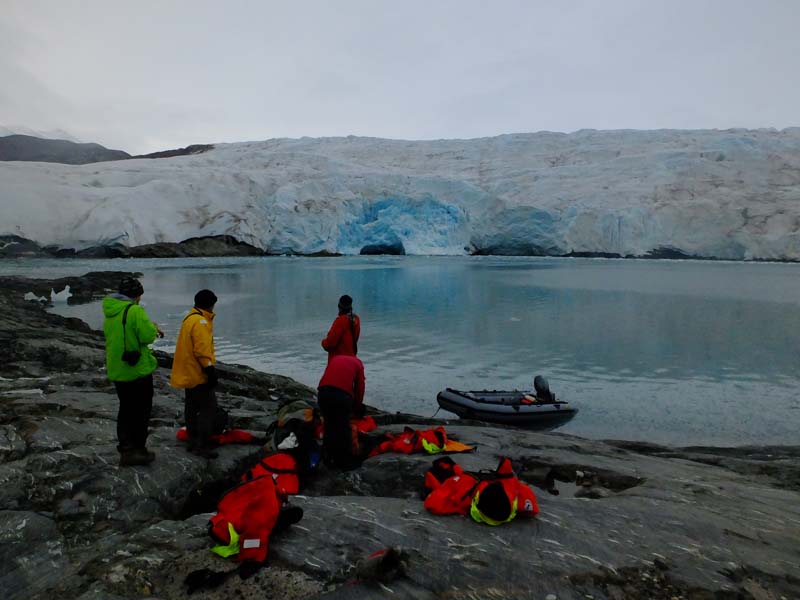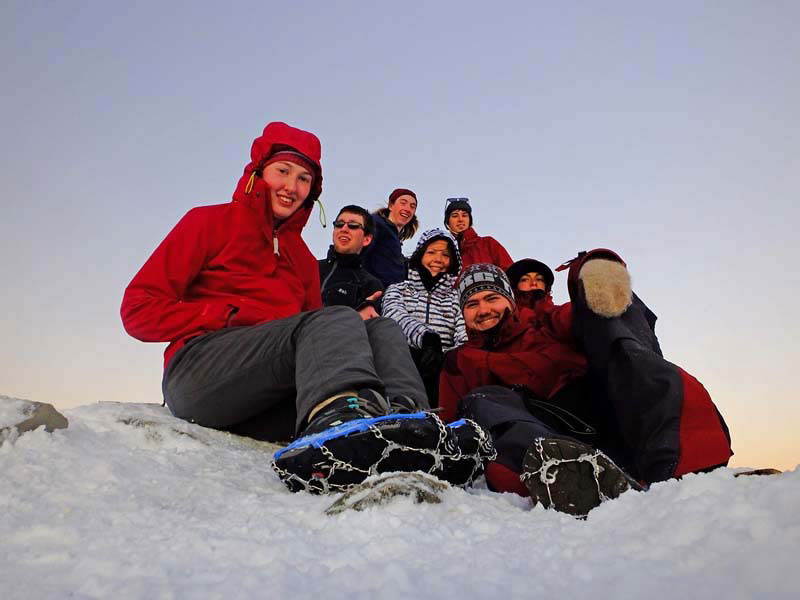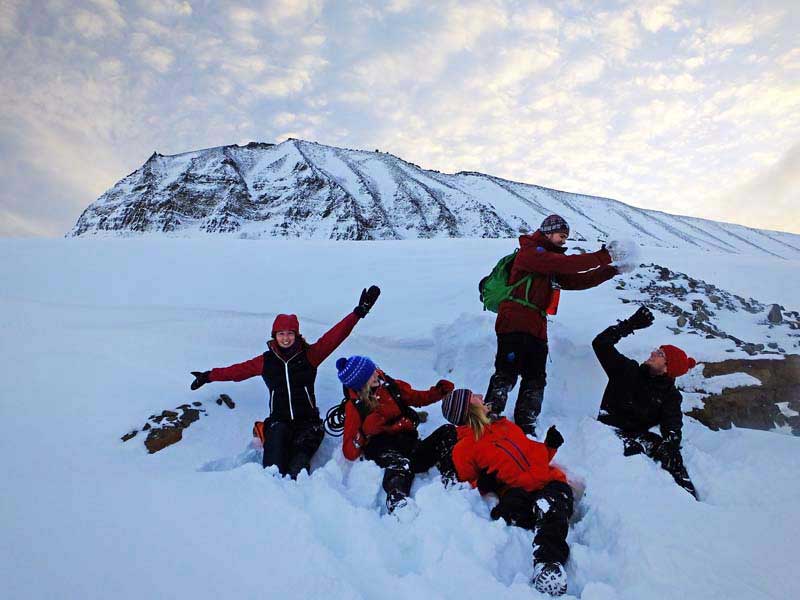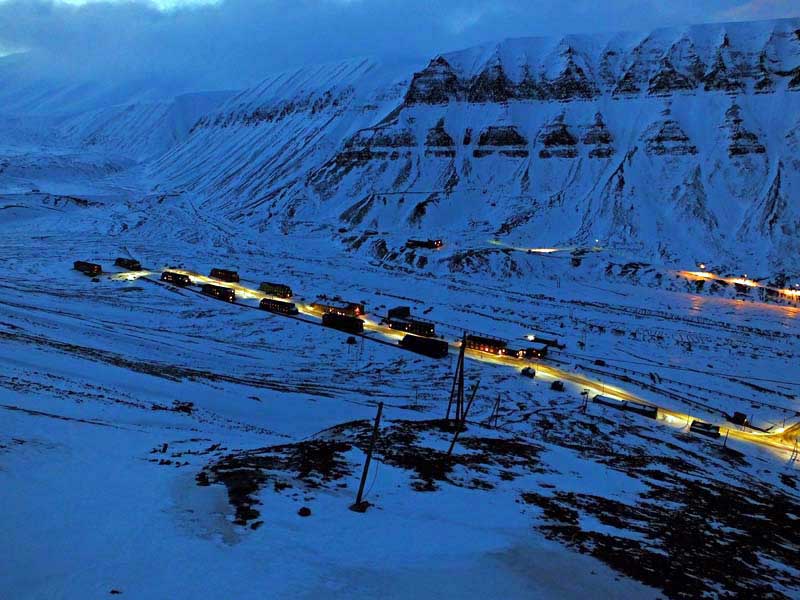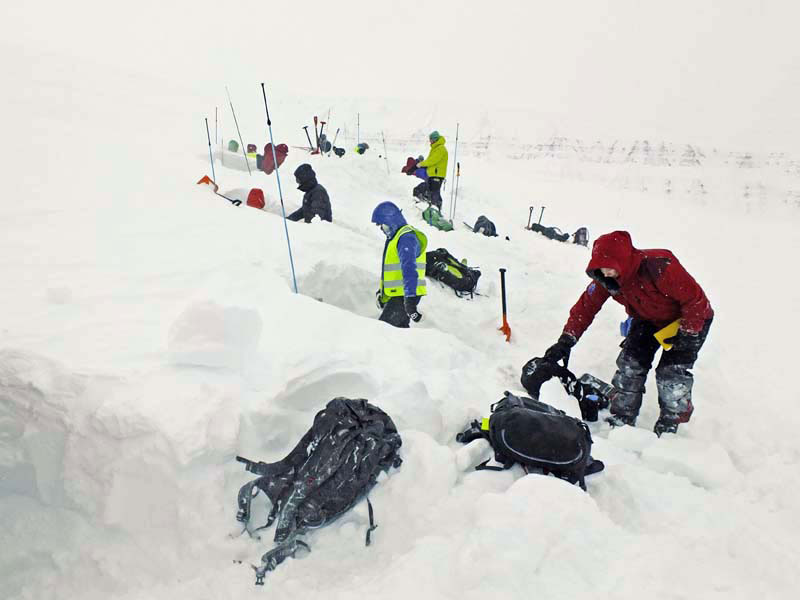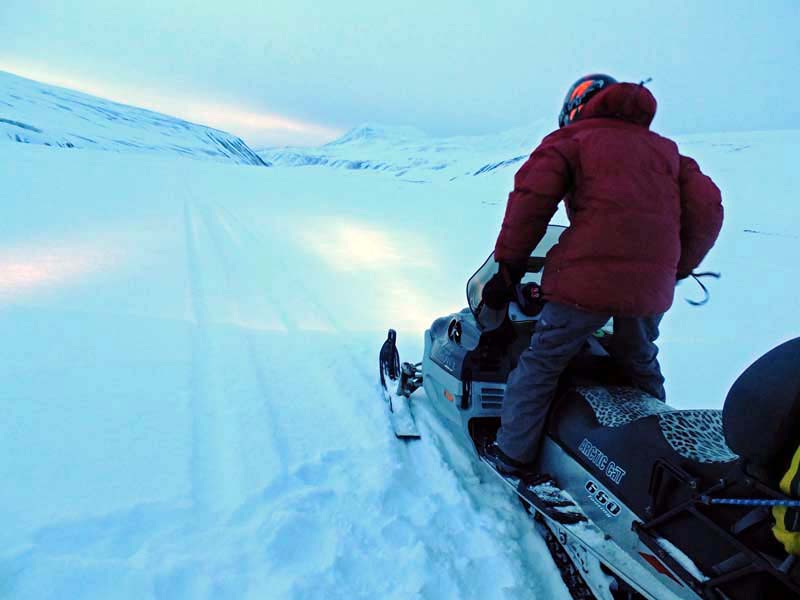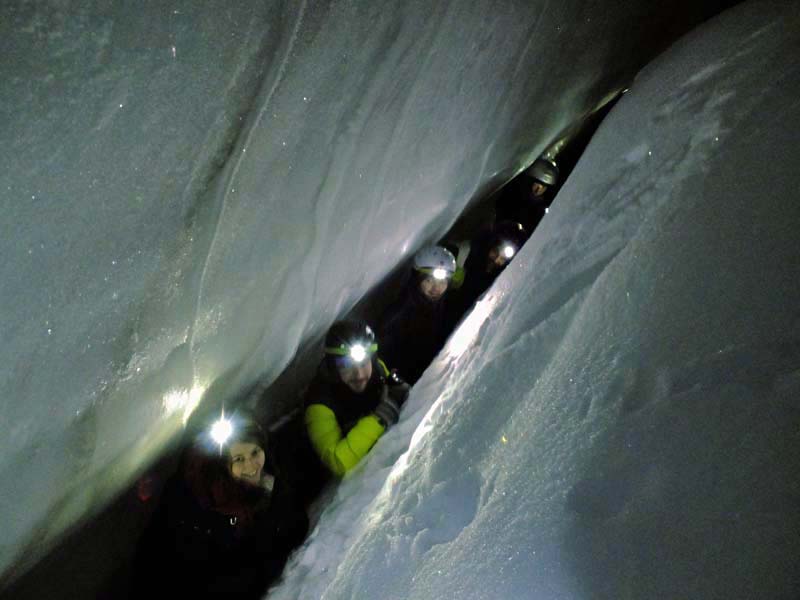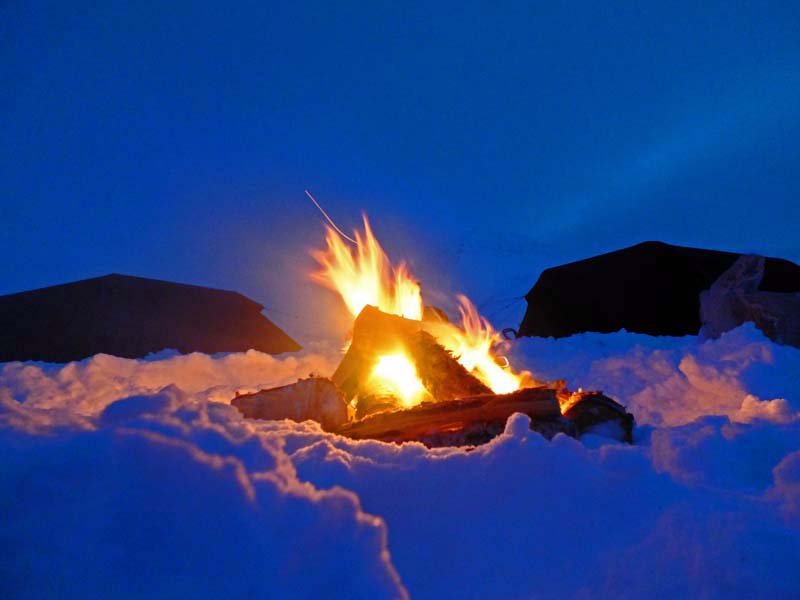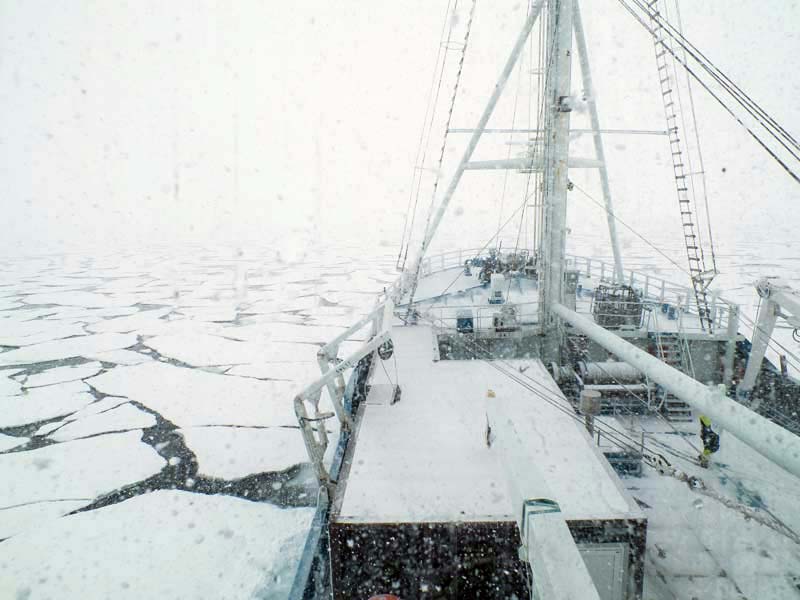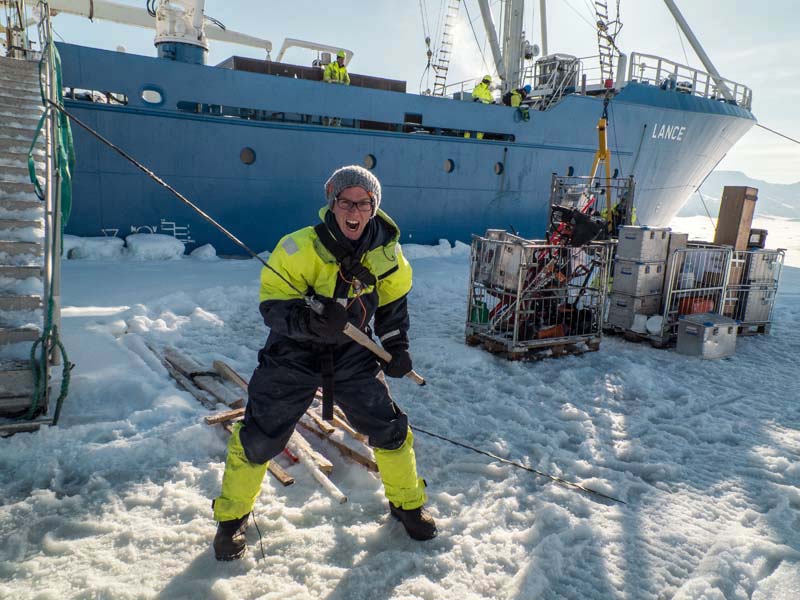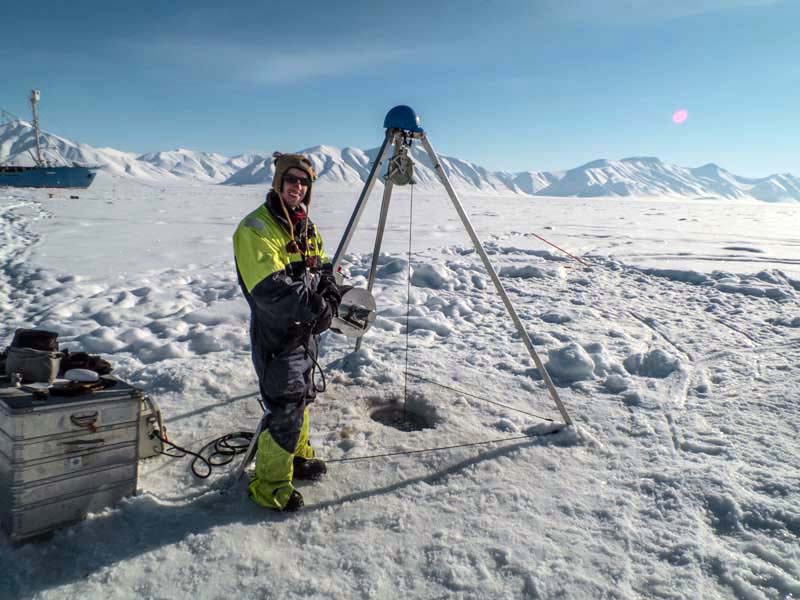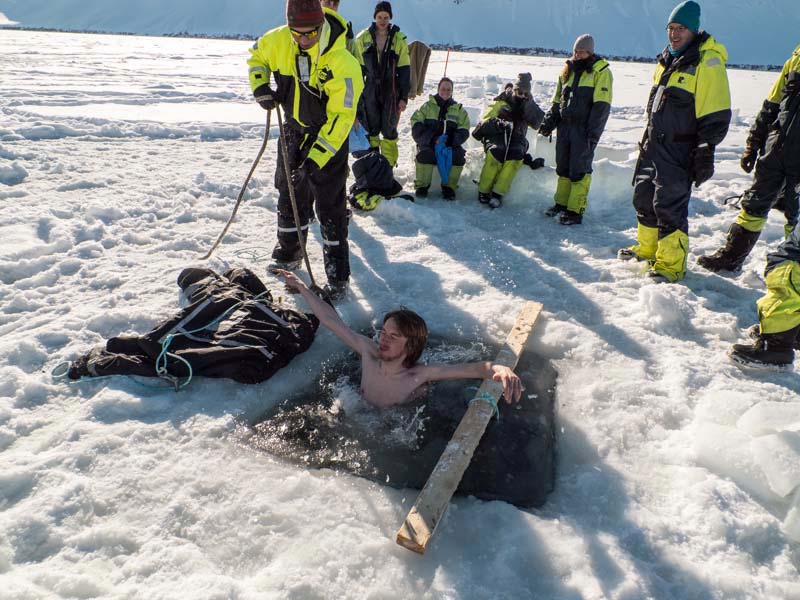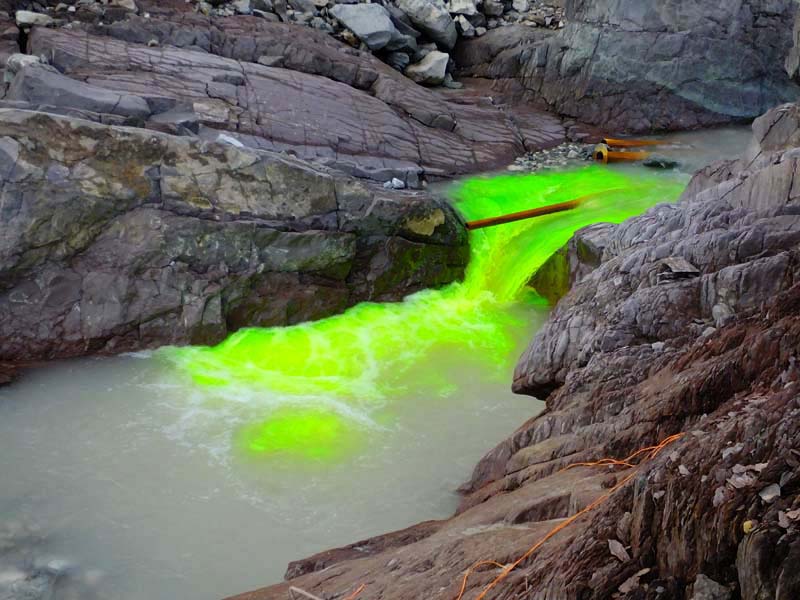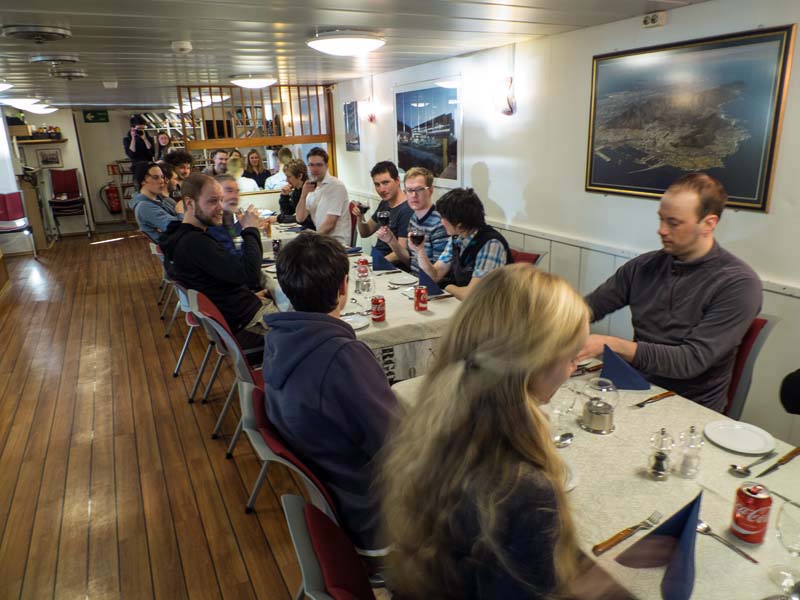This is a truly unusual and exciting degree programme to study an extreme and important part of the world, with the chance to spend time in the high Arctic.
For those opting to study in the High Arctic:
- >You immerse yourselves in the Arctic and learn much about it through experience
- >You are trained how to be safe in this extreme and remote environment and how to look after yourself and a team
- >You discover how to conduct Arctic research on ships, on sea ice, on glaciers and on land
- >You live in a young and multi-national community and will return with friends from places you had never even heard of before you met them!
- >And when you apply for jobs, you will stand out from the crowd!
Pathway leader: Dr Helena Reinardy
Each year, students study six 20 credit (10 ECTS) modules, usually three per semester.
Most modules are assessed through a combination of examination and continuous assessment. Continuous assessment is designed to suit the subject area and mostly includes one or several of these: lab reports, field course reports, essays, talks, poster presentations, research proposals, policy briefings etc
Named qualifications are available to students leaving after any year of successful study.
Arctic science pathways students study first and second year with all marine science students.
Marine Science with Arctic Studies students can study all four years at SAMS or may choose to spend part or all of their third year at their own expense in the Arctic.
Mandatory module for students spending at least one semester at SAMS
- >Literature review (topic must be relevant to Arctic studies)
Optional modules (choose two)
- >Marine Pollution
- >Marine Instrumentation and Data
- >Marine Conservation
- >Marine Biogeochemical Cycling
- >Marine Robotics
- >Marine Biotechnology
- >Ocean Circulation and Climate
- >Marine Zoology
- >Marine Microbial Ecology
A student who chooses to leave the programme after three years of successful study will be awarded an (ungraded) BSc Marine Science.
Mandatory modules
- >Dissertation (double module in topic relevant to Arctic Studies)
- >Polar Seas
Optional modules (choose three)
- >Aquaculture
- >Coastal Shelf Sea Dynamics
- >Fisheries Ecology
- >Defining the Carbon Cycle
- >Marine Environmental Impact Assessment
- >Marine Modelling
- >Deep Sea Ecosystems
After successful completion of all four years students are awarded the qualification of BSc (Hons) Marine Science with Arctic Studies.
This qualification is graded as first class (70%+), second class (upper) (60-69%), second class (lower) (50-59%) and third class (40-49%).
About Svalbard and Longyearbyen
You will go to the Svalbard archipelago, which is 79oN in the land of the midnight sun, 24-hour-darkness in winter, snow, ice, northern lights and - yes - polar bears.On the largest island of Spitsbergen is the only larger settlement in Svalbard, a small town called Longyearbyen with a population of just over 2000. Longyearbyen has excellent amenities such as an airport (daily flights to Oslo and Tromø), hospital, school. shops, hotels, restaurants/bars, indoor sport centre, church and museum. Go and have a peek here...
About UNIS, the University Centre in Svalbard
UNIS is a Norwegian run teaching and research centre with approximately 400 students from around 20 nations, most of them on similar 'exchange' programmes. There are around 50 university level courses at bachelor and master level, offered through four departments: Arctic Biology; Arctic Geology; Arctic Geophysics; and Arctic Technology. All courses include substantial field excursions and are delivered in English. Students are commonly highly competent and motivated, achieving good grades with extremely low failure rates.
We have an agreement with UNIS so that the courses students study there will count towards their degree here. Students will receive a completion certificate and a transcript of marks.
What modules can I study at UNIS?
| Arctic Biology | Terrestrial Arctic Biology | Semester 1 |
| Arctic Ecology and Population Biology | ||
| Marine Arctic Biology | Semester 2 | |
| Arctic Environmental Management | ||
| Arctic Geology | The Quarternary History of Svalbard | Semester 1 |
| Arctic Marine Geology | ||
| The Physical Geography of Svalbard | Semester 2 | |
| The Tectonic and Sedimentary History of Svalbard | ||
| Arctic Technology | Arctic Hydrology and Climate Change | Semester 1 |
| Arctic Environmental Pollution | ||
| Ice Mechanics, Load on Structures | Semester 2 | |
| Frozen Ground Engineering | ||
| Arctic Geophysics | Snow and Ice Processes | Semester 2 |
| Air-Ice-Sea Interaction |
Students must take modules from different areas if they stay at UNIS for two semesters.
Students pay the same course fees as for the Marine Science BSc to UHI. Following Brexit, there has been a change in funding available to pay for UNIS tuition fees. SAMS is currently looking in to alternative funding sources. Please contact bsc@sams.ac.uk for more information on costs for the Arctic Studies stream.
As well as tuition fees, students on the Arctic stream in Svalbard should also consider and plan for additional living costs. Living costs are higher on Svalbard than in Scotland, you will need Arctic clothing, and there is the cost of travel to Svalbard.
Approximate costs per semester not including tuition fees
| Excursions (£24/day) | 336 |
| Accommodation (£380 pcm) | 1710 |
| Subsistence (£500 pcm) | 2250 |
| Air Travel | 450 |
| Clothing | 900 |
| UNIS SEMESTER TOTAL COST | £5646 |
Students can also access study abroad schemes or student loans and apply for external bursaries and grants. Many students over the years have been supported by the Thomas and Margaret Rodden Trust and the Scottish Arctic Club for example.







